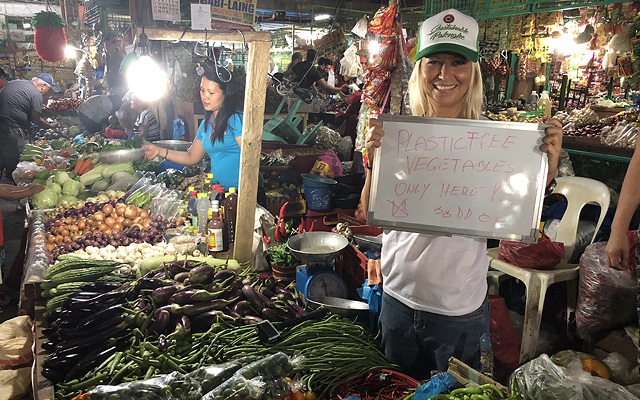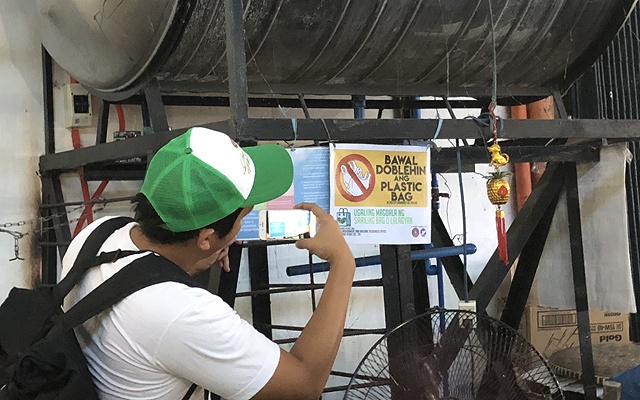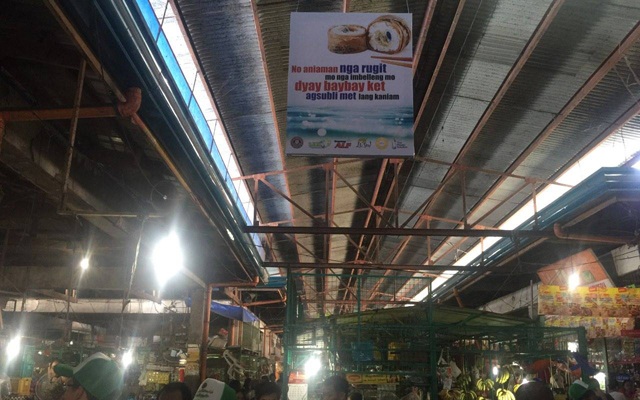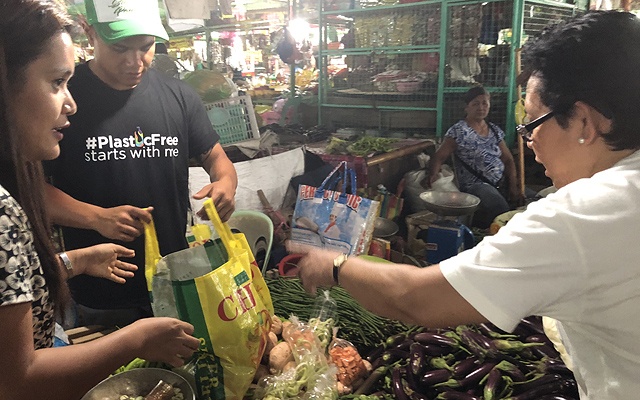
(SPOT.ph) Single-use plastics make up a huge percent of our global waste. These make their way to residential canals and, later on, cause floods during the rainy season. They eventually end up in the ocean, destroying our marine environment. (Have you seen the now-viral footage taken in the waters of Bali where plastic of every shape and size are just floating everywhere?) In just a public market alone, 48,000 single-use plastics are taken home every day—and who knows where these'll go?

To minimize the use of plastic and polystyrene foam (or Styrofoam), San Fernando City in La Union implemented City Ordinance No. 2014-03, which penalizes anyone who uses extra plastic when bagging wet goods. In addition, it prohibits the use of plastic bags for dry goods; plastic straw; and plastic or Styrofoam plates, cups, and spoon and fork (except for takeout items). Selling of per-piece plastic bag is also not allowed.
In an effort to make this shift easier for consumers, volunteers from Lupon ng mga Indibidwal na Nangangalaga ng Kalikasan, Young EarthSavers Society Bacnotan, The Plastic Solution, and La Union Soul started a campaign called Sustainable Palengke. Their mission was to raise awareness about the ordinance, document and study single-use plastic usage in the city, and educate market goers on the positive impact of bringing reusable bags.

"There seems to be a gap between the law being implemented, and the people following through. People do not understand why they needed to shift to reusable bags," says Steven Angelo, President of the Lupon ng mga Indibidwal na Nangangala sa Kalikasan (LINK).
On March 15, the groups visited San Fernando Public Market to start their on-ground campaign. Aside from individually talking to sellers, posters were put up on how plastics are making their way into the sea, to the marine creatures, and eventually to peoples' plates. Other volunteers took over stalls and sold produce while educating buyers why they should use reusable bags. Eco-bags were also distributed for free in exchange of the buyers' plastic bags.

"Some senior buyers refused to give up plastics because they used it at home as garbage bags, or they use it as fuel for burning trash," Laura, a volunteer, shares her experience.
Despite the setback, the La Union groups see this as a start to plastic-free buying in their city.
[ArticleReco:{"articles":["69904","71089","73067","73034"]}]

Post a Comment